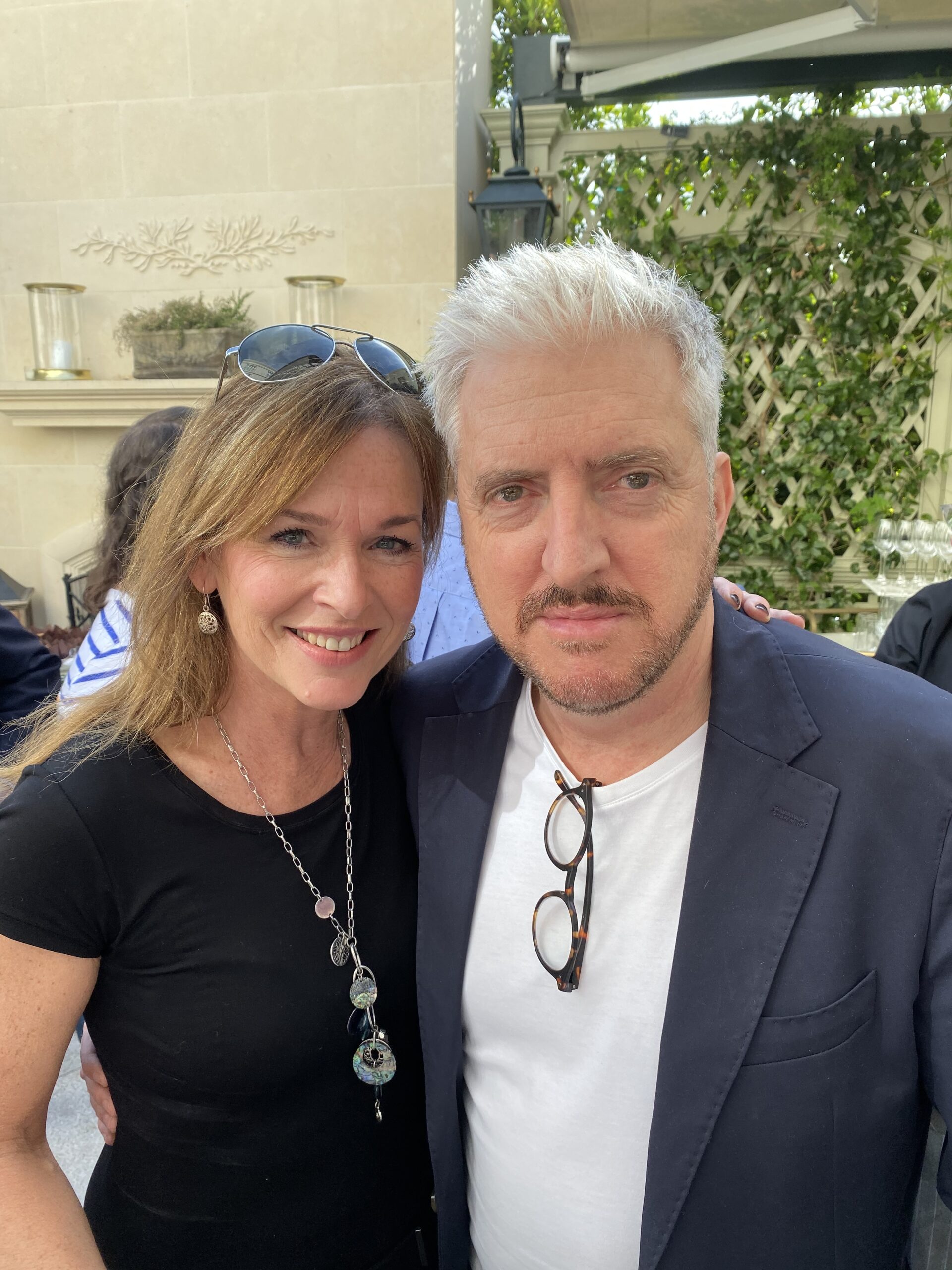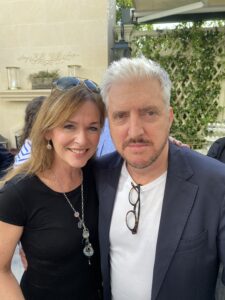
An interview with writer Andrew McCarten for “The Two Popes”
December 18th, 2019 Posted by pamela Interviews, Review 0 thoughts on “An interview with writer Andrew McCarten for “The Two Popes””Academy Award nominated writer Andrew McCarten (“The Theory of Everything,” “The Darkest Hour,” “Bohemian Rhapsody”) undertakes one of the most elaborately creative stories imaginable…the changing of the Catholic Guards. As the conservative Pope Benedict (Anthony Hopkins) begins to consider stepping down, a feat not undertaken for centuries, he discusses his hopes for a future of Catholicism with future Pope Frances (Jonathan Pryce), the antithesis of Benedict. “The Two Popes,” streaming on Netflix beginning December 20th and in theaters, is a surprisingly touching and eloquently imaginative film that restores your faith not only in religion, but in finding peace between one another.
Creating this script that is unexpectedly funny takes the genius of someone like McCarten whose credits exhalt him to the highest level. In a recent opportunity, I, along with several other film critics, attended the LA premiere and chatted with this gifted and down-to-earth writer about the inspiration and background of the film. Here’s what he had to say:
Pamela Powell (PP): How do you consistently create such multidimensional portraits of characters?
Andrew McCarten (AM): It’s something that’s evolved since doing Stephen Hawking and then Churchill. It’s a bit like you put a canvas there and your subject’s there. (Motions with his hands.) The first thing you have to do is study the subject and you can’t stop digging at a superficial level, you have to go into their deepest stores and imagine what their fears are, what they had for breakfast, what are their mannerisms, what are their foibles, and eccentricities. You get to a certain point you think can I start work and you go, yeah I think we’re good to go. Then you start playing with it a little bit. I need to know what Frances thinks about homosexuality, but I also need to know what he likes for breakfast. Does he eat with a knife and a fork? We’re all very rich and multidimensional.
Paul Salfen (PS): The other films were biopics and [this film] doesn’t fit that genre.
doesn’t fit that genre.
AM: I’m not sure everyone would agree with you, but I would. This is bigger role in terms of the style of or the extent to which I’m using artifice because we don’t know that these two had these debates in these rooms. They probably didn’t, but what I did is take what one said in one room and what another said in another room and I open two doors and bring them in and put those stated positions into play with each other. So that’s the artifice of the [film] and it seems to work.
Question: We’re curious about the whole pizza, the Fanta, or even the beer and watching the World Cup.
AM: Here’s the origins of those things. My wife is German and so I can make jokes about Germans. Laughs. She had a personal friend who once had dinner with Pope Benedict when he was archbishop of Munich and everyone was drinking wine and he called for a Fanta. When asked why he said that’s all I drink with evening meals because during WWII Coca Cola was banned and for some reason they allowed Fanta. So kids who grew up there in that period of Nazi Germany were all addicted to this fizzy orange drink and he’s still addicted to it.
The football thing was, Pope Francis was a world famous futbol fan…there was one picture of the two of them from behind watching TV. You couldn’t see what was on the TV and I remembered thinking, I hope that World Cup Game between Germany and Argentina happened just after Frances became pope because that would be a wonderful way to end. I remember googling it and going PLEASE! And it was played two months after he became pope. And I think it’s justified by that photo of them watching TV
Question: Your background is Catholic. Tell us about its influence on the film.
AM: I lived it. I grew up in this. It’s a culture you grow up in and it was all-ecompassing. Church was the center of the community. We went to church every day or two it seemed. I was an alter boy to the preposterous age of 15! The little surplus thing came down to here. I used to look at my mother like Come on! And she’d go no, it’s great, it’s great. I used to do it for her because it made her happy.
I’m very sentimental about the institution and I know it from the inside. I was raised by nuns and catholic brothers and I saw these honest, well-intentioned, good workers, humble workers in the vineyard of the Lord, and they were selfless. They gave their lives to other people. And when I open every newspaper, it’s a horror show and no one’s ever told the story for a long time about what’s really going on in that institution that’s 2000 years old. It does a ton of good work, but no one’s hearing about it.
I’m showing two insiders and they obviously are not going to say, “Let’s burn the place down. He’s a revolutionary. The center of the whole thing is between a liberal and a conservative. I think the reason it’s having the impact it is is because it’s speaking to the fiery debate that’s happening in the world. We can’t seem to find the middle ground. The middle seems to have collapsed to me. We have to regain the high ground in the middle.
Question: How did Jonathan Pryce and Anthony Hopkins prepare for these roles?
AM: I can only tell you about their preparation because I’ve sat on panels and listened to them. I think the way they express it is that Anthony Hopkins is a classical pianist and Jonathan Pryce is a jazz pianist. 5 months before they started filming Anthony Hopkins said at my age I’m going to learn these lines once, ok? Don’t change anything. And Jonathan is more improvisational so I’ll learn the lines, but I’m going to play and be open and be loose. So these two styles meet and it’s actually so fitting for this movie where you’ve got a traditionalist and a progressive and you see that, actually, in the score of the piece where you’ve got classical music and then [jazz]. The idea is to bring jazz into the classical arena. That’s what he represents is someone who is a populist.
Question: What’s the Catholic Church’s reaction to the film?
AM: Various members of the clergy whenever we were screening, they come up with a mixture of gratitude and relief. I mean, they must be expecting the worst and if you see any Hollywood movie about the Catholic Church so I think they stagger out of there quite relieved.
Question: Did you film in the Sistine Chapel?
AM: No, we built it. It’s actually 5 inches bigger than the real Sistine Chapel. I think there was a joke on the part of the designers, they wanted the world record for the biggest Sistine Chapel. (Laughs)
